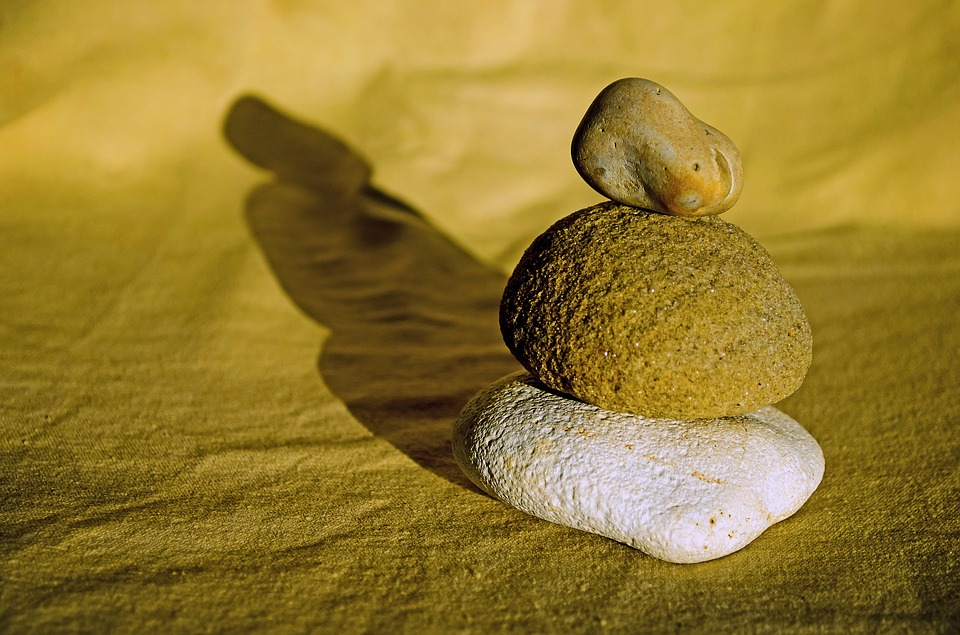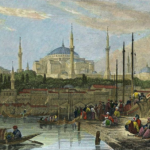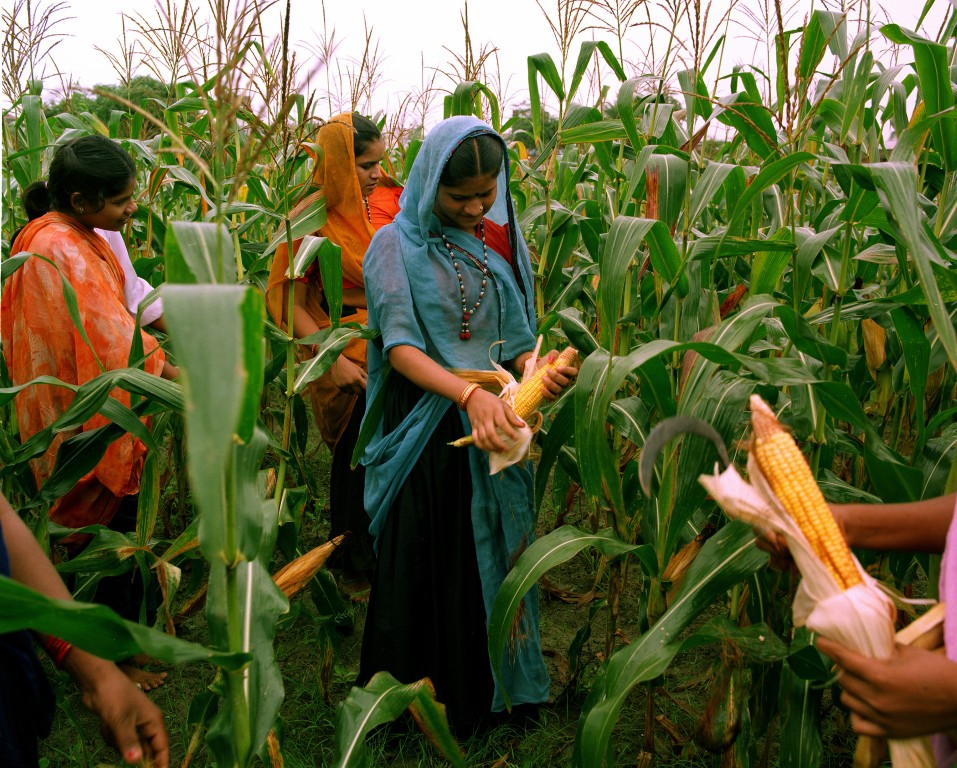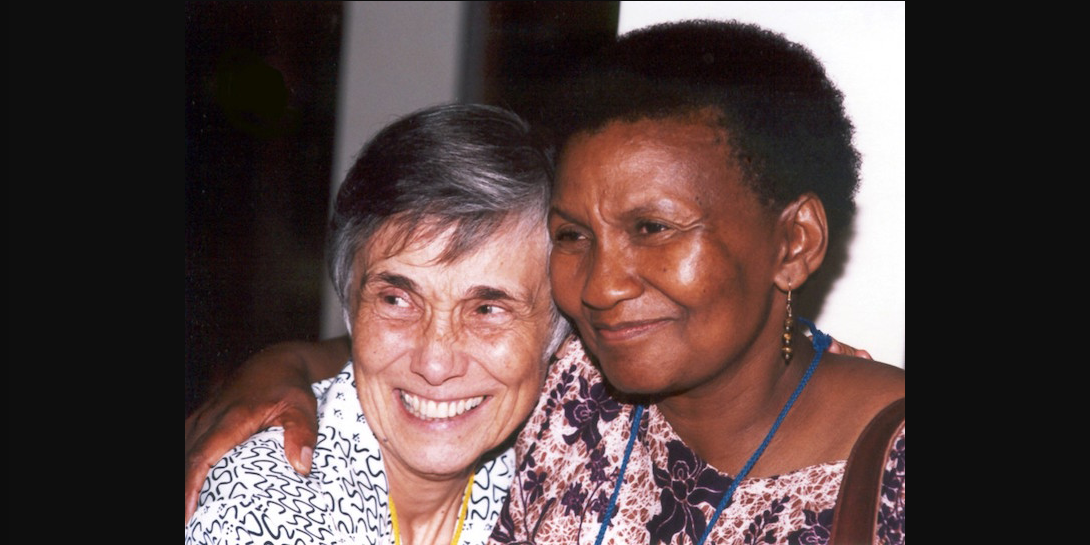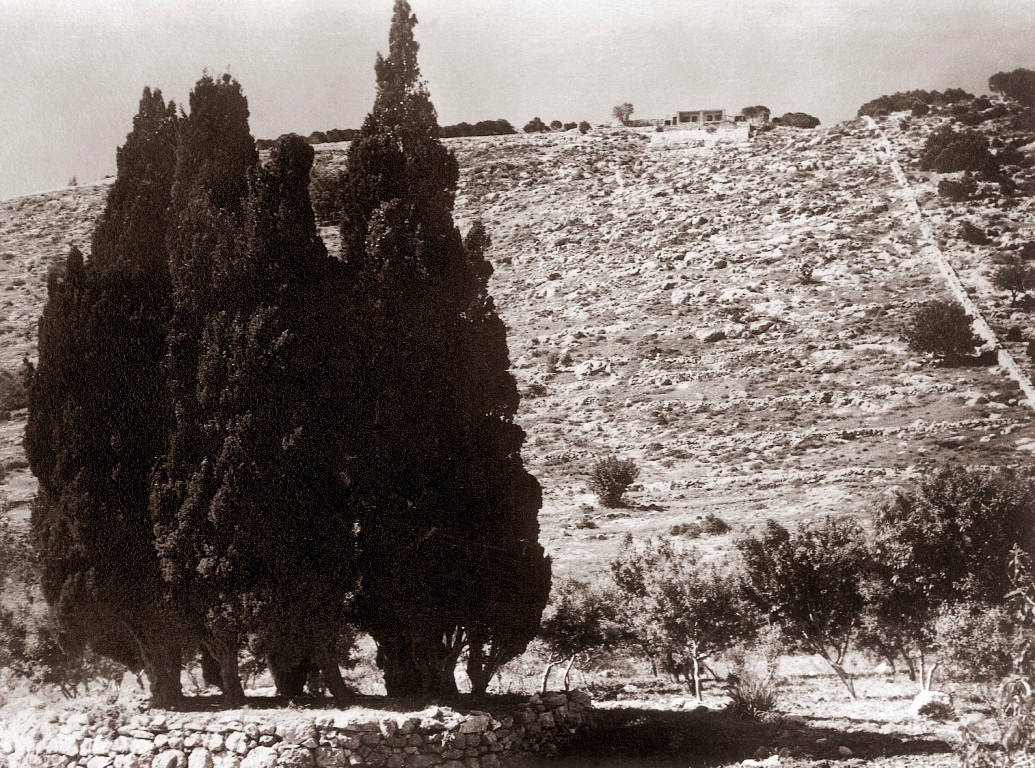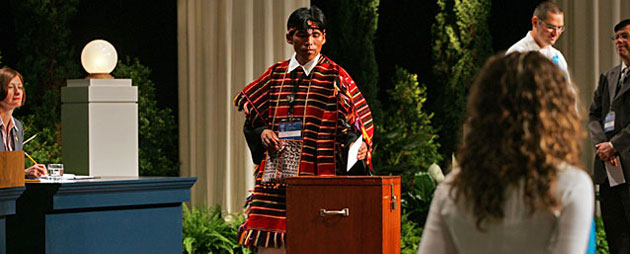
Baha’i Elections

As explored in the article on religious institutions, Baha’i decision making bodies are elected bodies. So what do Baha’i elections look like? Perhaps our experience of elections isn’t very “spiritual” – their focus on exaltation of the individual – the tendency for the electoral contest to polarize a community – and a process with often draws out the worst in the “combatants”. Such patterns aren’t of course coherent with the Baha’i teachings – and aren’t present in Baha’i elections. What does a democratic process look like when carried out in a spiritual environment?
A short description of the experience helps.
We are in a hall. Delegates and Baha’is who wish to attend have gathered for the election. The chief teller comes forward and quietly explains the principles of Baha’i elections. Someone comes forward to read a prayer.
No nominations are called. No candidates stand forward. No speeches are made. No promises offered. There has been no discussion of individuals who might be elected. No campaigns have been conducted – indeed electioneering is prohibited. There is accordingly no campaign funding, as none is necessary. Since their own election as delegates – the delegates have given private thought to those members of the community who best fulfil the requirements of office.
Silence fills the space. Both delegates and observers offer prayers. Each delegate searches their heart for inspiration. They have a ballot with nine blank spaces and write down on the ballot nine names. The teller calls the delegates to come forward one by one and cast their ballot.
After the votes are counted, the tellers return and announce the names of those elected – the 9 highest vote recipients. As each name is called, the person elected is called to the front. They stand humbly before the assembly. Some are in tears. As the last name is called and the person comes forward the assembly rises – a standing ovation and a wave of love sweeps over those called to serve. There is a consciousness of the personal sacrifices which have been asked of those elected. One of their number comes forward and pledges their devotion to the task that they have been called to perform. A sense of gratitude is in the gathering that the community has been able, in freedom, to elect the institutions called for by Bahá’u’lláh. It is a freedom not all Baha’i communities enjoy.
This is what Baha’i elections are like. Free and fair elections in every sense of the word – and also much more.
The Baha’i elector is not called to vote according to “policy” or “promises” as there are no election platforms to be considered. Rather the elector is called to consider those whose character and experience best suits them to serve, and the representation of the full diversity of the community.
it is incumbent upon the chosen delegates to consider without the least trace of passion and prejudice, and irrespective of any material consideration, the names of only those who can best combine the necessary qualities of unquestioned loyalty, of selfless devotion, of a well-trained mind, of recognized ability and mature experience.[1]
From among the pool of those whom the elector believes to be qualified to serve, selection should be made with due consideration given to such factors as age distribution, diversity, and gender. The elector should make his choice after careful thought over an extended period before the actual election.[2]
In 2007 the Universal House of Justice made the following observation.
Through their wholehearted embrace of the Bahá’í electoral process, the believers will witness, day by day, a greater contrast between the emerging institutions of the Bahá’í Administrative Order and the decaying social order around them. In this increasing distinction will be seen the promise of the glory of the World Order of Bahá’u’lláh—the System destined to fulfil the highest expectations of humanity.[3]
At once a vision of an unfolding future; and at the same time the forging of a high standard to which the Baha’i community must attain. May this high standard ever be kept in mind.
This article is the 69th in a series of what I hope will be 200 articles in 200 days for the 200th anniversary of the birth of Bahá’u’lláh. The anniversary is being celebrated around the world on 21 and 22 October 2017, The articles are simply my personal reflections on Bahá’u’lláh’s life and work. Any errors or inadequacies in these articles are solely my responsibility.)
Image Credits: A delegate from Bolivia casts their ballot during election of the Universal House of Justice, April 2008. Copyright © Bahá’í International Community
